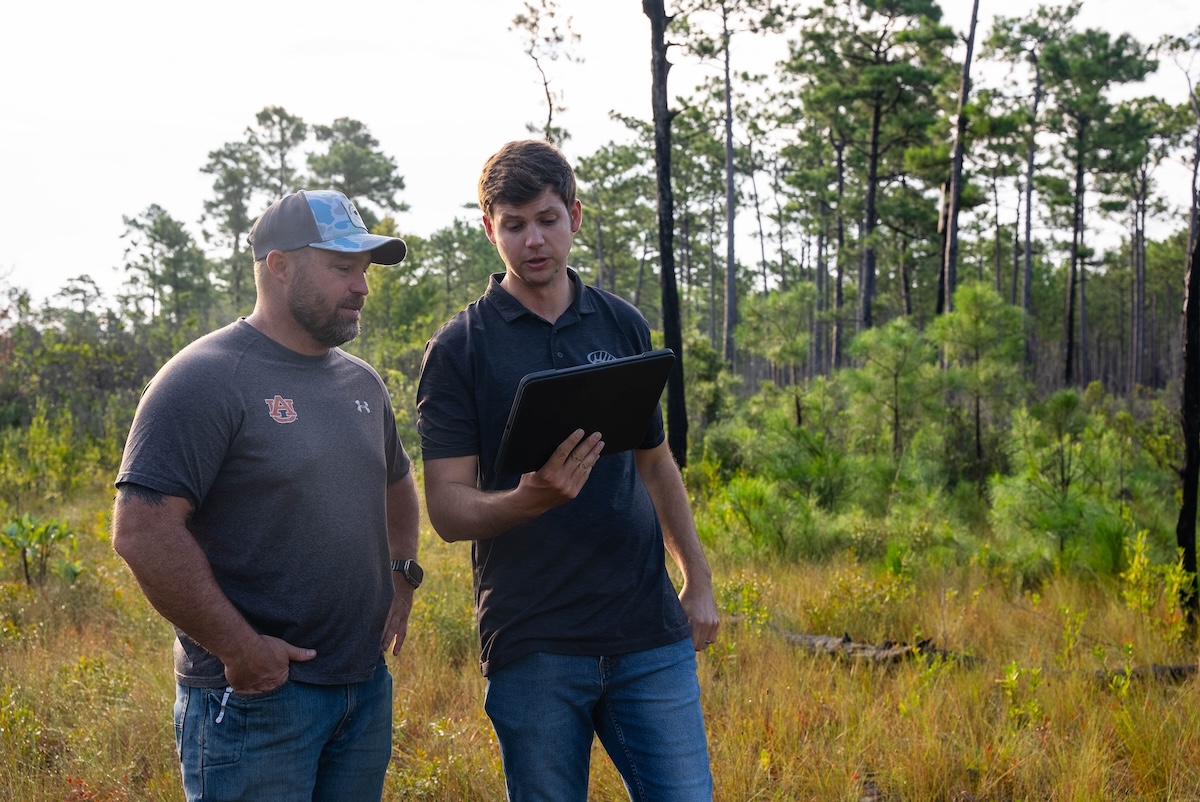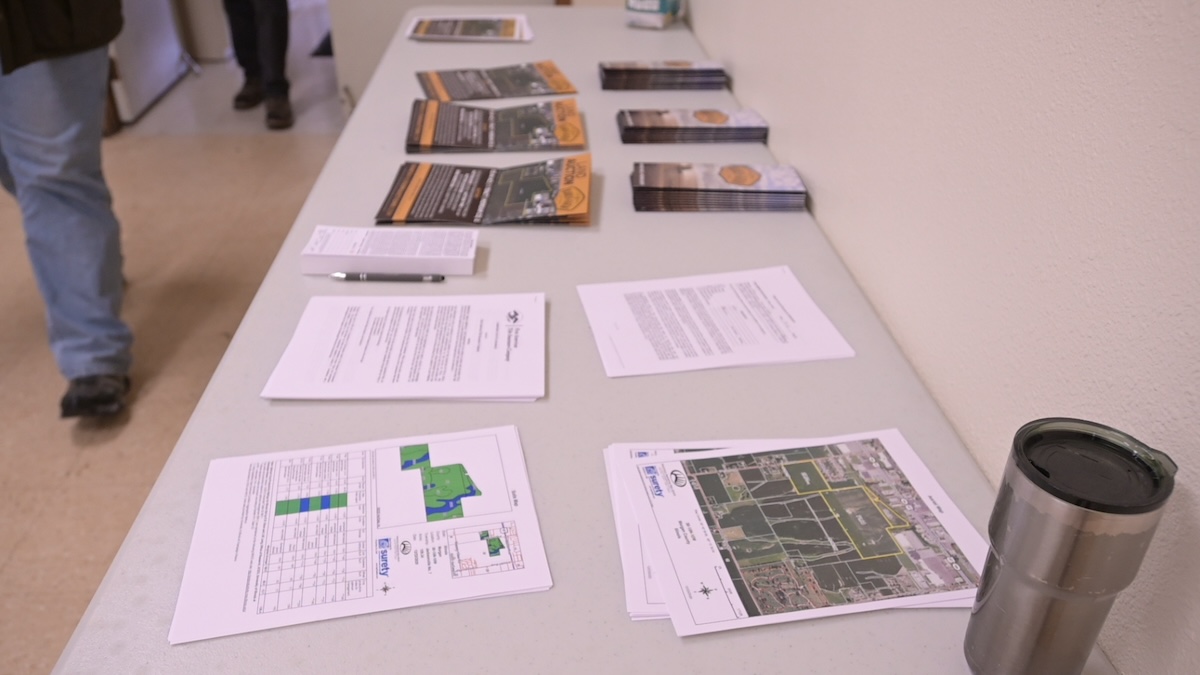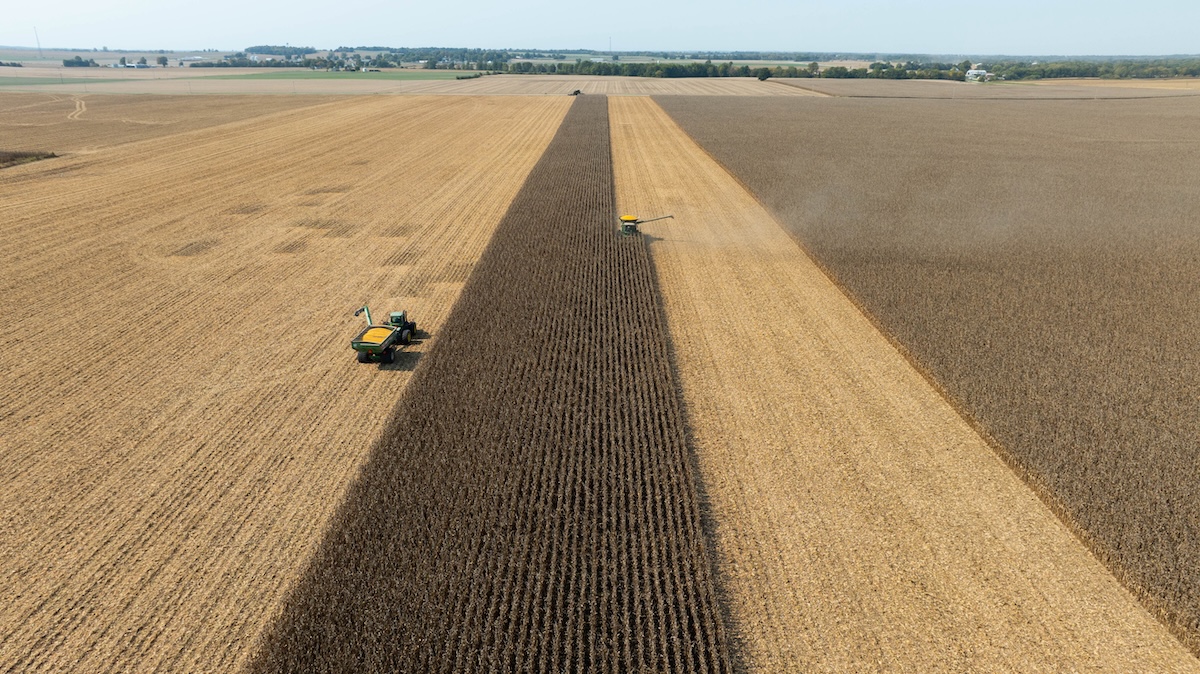
Tax Implications of Buying and Selling Agricultural Land
What are tax considerations for farmland? Does selling agricultural property impact your taxes? Are there tax benefits of owning land? These and more are legitimate real estate questions.
It's important to know that there are no up-front tax implications when buying land. Buying land does not trigger a taxable event. That said, there are important steps to take when purchasing land, though. (More on that later.)
Of course, things change when you sell the land. Income generated from the property is taxable and must be reported with your annual tax filing.
All said, buying land starts the clock of eventually owing capital gains taxes upon selling that property. Here's information on tax implications of buying and selling agricultural land.
Editor's Note: This is not tax, financial, investment, legal, or real estate advice. Consult with a financial planner, investment specialist, real estate lawyer, and real estate professional before buying or selling land.

Important Real Estate Tax Terms to Know
Real estate is multi-faceted and full of generalities and more nuanced elements. Those dealing with real estate should understand these. Here are basic, but important, real estate tax terms to know.
Capital Gains: The increase in the property's value over what the land was purchased for. Sellers are taxed on the profits (capital gains) acquired upon selling the real estate.
Long-Term Gains: Generally, selling real estate after holding the asset for more than one year classifies this sale as a long-term capital gain, which is taxed at a determined percentage.
Short-Term Gains: Oftentimes, selling real estate after holding it for one year or less classifies this sale as a short-term capital gain, which is taxed at your ordinary income tax bracket.
Assessed Value: The assessed value is the real estate value assigned to a property by a public tax assessor.
Cost Segregation: Upon the purchase of a diverse property, cost segregation categorizes the various types of structures and land on the landscape. Each is assigned a fair market value within the sale price. This allows the buyer to depreciate certain portions of the property over time.
Land Improvements: These are changes made to the landscape that improve the property's value. This has implications on annual property taxes and can help reduce your capital gains bill once you sell the property.
Cost Basis: The cost basis is the original purchase price of real estate. This includes initial commissions, fees, closing costs, and other fees associated with the initial purchase. It also factors in qualifying improvements made to the property. These figures are important, as these will be used to determine the profit gain or loss upon selling the land.
Adjusted Cost Basis: The cost basis plus the cost of capital improvements made to the property.
Stepped-Up Basis: The tax ruling that adjusts the cost basis of inherited real estate to the most current market value. This can reduce capital gains tax liabilities.
Fair Market Value: The figure of which the property would likely sell for on the open market.
1031 Exchange: A program where a seller can roll all proceeds of a real estate sale into another real estate purchase that is of equal or greater value. Enrolling in the 1031 Exchange allows the seller to defer capital gains from the profit of the sale until a future date.
Editor's Note: Want to know more about the 1031 Exchange? Click here for a complete guide on this method for deferring capital gains taxes on real estate.
Exemption: A tax provision that can reduce, or in rare instances, eliminate tax liabilities. In most cases, it describes a reduction in taxable income.
Of course, there are other important real estate tax terms to know. Consult a real estate land specialist or real estate lawyer for specific and more detailed inquiries.

What Are Capital Gains Taxes?
"Capital gains are the differences between what you bought it and sold it for," said Luke Wallace, a Whitetail Properties land specialist in Nebraska. In many instances, capital gains owed are approximately 28% of net profits.
As for paying capital gains taxes, these are due by the annual tax deadline immediately following the sale of the farm. For example, if you sell a farm in 2025, capital gains tax liabilities are due on or before the federal tax deadline, which will be April 15, 2026. Barring extensions and federal changes to that date, it's consistent each year.

Can You Avoid Capital Gains Taxes on Real Estate?
Some might ask, can you avoid capital gains taxes on real estate? The short answer is a resounding no. However, while you can't avoid capital gains, it is sometimes possible to delay or reduce these tax liabilities.
Delay Capital Gains Taxes: Potentially delay capital gains taxes by implementing the 1031 exchange.
Reduce Capital Gains Taxes: Potentially reduce capital gains taxes owed by using an adjusted cost basis or a stepped-up cost basis.

Are You Going to Farm the Land?
For those looking to have their own farm operations, you're essentially starting a business. One of the biggest hurdles is learning the start-up process, and all business-, legal-, and tax-related nuances of this endeavor. Oftentimes, this involves starting an LLC or corporation.
"You should have that all hammered out, or at least the nuts and bolts of it, before buying land," Wallace said. "For a newcomer, when buying and selling agricultural land, talk to your CPA and accountant. Learn the tax implications of this."
Furthermore, learn the state and federal business and tax laws that apply. "Each state has its own laws regulating LLCs, corporations, and pass-through entities (i.e. S corps)," Wallace said.

How Standing Crops Impact Land Sales
Those who buy and sell land with standing crops have additional factors to consider. There are numerous scenarios that can play out when either buying or selling land with standing crops.
Buying Land with Standing Crops: If you buy land with standing crops, and that land is leased to a farmer for cropping, chances are you won't be purchasing the crops. Instead, you're purchasing the land, and the crop value is retained by the lessee. That said, in many instances, you as the new landowner should receive a prorated portion of the lease agreement total.
Selling Land with Standing Crops: If selling land with standing crops, and the land is leased to a row cropper, the most likely scenario is that which is outlined above. That said, if you are the farmer, and haven't leased the land, it's possible to sell the standing crops along with the land. It's possible to sell the standing crops to the new buyer. Of course, those come with significant value. According to Michigan Farm News, crops sold as part of the land sale are taxed as capital gains. In contrast, harvested crops not included in the land sale are taxed as ordinary gains.

Implementing Cost Segregation and Adjusted Cost Basis
There are two ways to minimize tax liabilities. The first is cost segregation. As outlined above, this itemizes the different types of real estate on the property, assigns each a fair market value, and sets the buyer up for depreciating depreciable parts of the property.
Improvements also help. "Improvements decrease the amount of capital gains you will pay. It is a deduction," Wallace said. "Water wells, center-pivot irrigation, converting from diesel-powered pivots to electrical pivots, agricultural buildings, and more, are some of the big ones," Wallace said. "You can depreciate these things out."
Of course, other things might apply, too. For example, road systems, dirt work, grading, rocking, waterway bridges, and more, are potential considerations for improvements that apply to an adjusted cost basis.
Furthermore, for recreational lands, permanent hunting blinds can be counted as well. These increase the property value and are depreciable assets.

A New Way to Depreciate Land?
New and experienced real estate individuals alike might be pleased to learn about a new way to depreciate soil quality. According to Wallace, it's brand new, but entirely legitimate.
"It's worthy of mention, right now, on agricultural farms, there are some companies that are doing soil sampling," Wallace said. "They'll take the nutrition of the soil on that farm, assess a value, and depreciate that asset. So, the nutrients in the soil on the farm you purchase are an asset you can depreciate out on a schedule. This is a very new practice, but it's a long-term play."
According to Wallace, you must complete these steps in between the time you purchase the farm and when you put down nutrients. The soil sampling must be done before you put anything down. Of course, there are strict rules that apply to the process, including when sampling can be done.

Handling Estates Properly: Prevent Drama and Benefit from a Stepped-Up Basis
Inheriting land opens another category of importance. In most states, the inheritance tax is steep. Also, drama tends to follow those who don't properly prepare.
"Some people have estates. Maybe Dad or Grandpa farmed," Wallace said. "If you're planning to pass it down, talk to an estate planner. Get that all set up beforehand."
"When dollars, especially big dollars, are being passed around, and with people who have no interest in production, the worst can come out in people," Wallace said. "As the one passing stuff down, you can get ahead of that, and set up heirs for success. It's much easier on the backend. A lot of headache and family heartache can be prevented."
You can set it up in a trust and hand it down that way. Or, in your will and testament, designate an equal number of acres, or equal shares of the property, to each kid or named person in the will.
"It's easier when it's all spelled out in black and white, rather than leaving it up to the people who are inheriting it," Wallace said.
Relationships aside, there is a way to minimize tax liabilities for inherited land. "Heirs have the option to step up their basis for the sake of inheritance taxes," Wallace said. "This can lessen the blow regarding capital gains taxes."

Is It Time to Sell Your Farm?
Some might decide it's time to sell their land. There are important considerations before doing so, though.
"From a selling standpoint, I recommend talking to an accountant before putting a farm up for sale," Wallace said. "We'll provide a market value number. They'll take it to an accountant, which can help with planning."
Of course, you also need to know your basis and adjusted cost basis (which accounts for costs of improvements made). Paired with a projected sale price, the accountant can determine what your anticipated capital gains and tax liability will be after selling the farm.
Without question, make sure you're selling for the right reasons. Some of these include:
- Gifting it to heirs, such as children, or other family members and friends.
- Freeing up liquid capital to make another real estate purchase.
- If interest rate charges, real estate taxes, and other costs are outpacing land value increases and production profits.
- To have more money that's liquid or re-invested.
- And more.
For landowners looking to sell at auction, contact Ranch & Farm. We can answer questions and help with your auctioneering needs.
Published on 2025-03-14